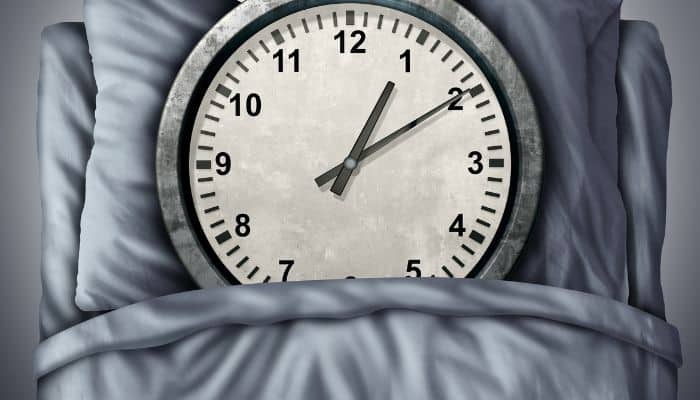Injuries can be life-changing. You might find yourself with a prescription to rest instead of being allowed to do all the fun things you were looking forward to. Instead of spending your time lamenting, you can make your recovery from injury go by faster by supporting both your body and mind. Knowing how to recover mentally after injury is just as important as recovering physically. Here are a few steps you can take to make peace with what happened and put your best foot forward once you heal.
How to Physically Recover Faster
When you’re injured, you start to notice all the things you miss doing. Taking care of yourself physically and listening to your doctor are the best ways to help you heal without any issues. Recovery from injury can take a while, but recovering well is worth it.
1. Eat a Healthy Diet
Did you know your eating can impact how fast and well you heal? You need a lot of protein if you want to speed up your healing in a healthy way. Protein can heal wounds and even help your red blood cells and bones grow stronger and replenish themselves. Since protein helps your muscles develop, it’s an essential part of repairing anything you may have lost while injured. Getting enough protein is especially important for anyone who’s active every day, like those who go to the gym or train as athletes.
You can also opt for fruits rich in Vitamin C or fish with omega-3 fatty acids, as both of those nutrients can help you heal well. Both can lead to less inflammation and make it easier for you to move around. Zinc can also help the healing process, and it’s often found in nuts and crabs.
2. Stretch Often
You don’t want to push yourself too much, so stretching might be the best activity for you once you start your recovery from injury process. You can increase your flexibility, which might keep you from another injury in the future. You may not be able to stretch with some injuries, so ask your doctor what movement level would be best for you.
3. Get Enough Rest
You may think you need to push yourself to move more to work through your injury. However, getting more rest is the most important thing. Sleep can help your body repair itself and grow through injuries, and although it may be boring to sleep more, you’ll improve your immune system and feel more energized.
Always listen to your doctor’s recommendations. They’ll be able to tailor a movement plan to you, and you may be able to resume your daily activities or heavy workouts sooner if you listen to their treatment plan for you.

How to Recover Mentally After Injury
An injury takes a toll on more than just your body. It can damage your mental state, too, especially if you now have to miss out on something you looked forward to. You need to make time and space for learning how to recover mentally after injury because it can make a difference in your outlook on the situation.
1. Stay Away From Performance Enhancers
The only substances you should be taking during your recovery time are the ones your doctor prescribes to you. If you used performance-enhancing drugs, consider working through behavioral therapy, which can help you identify patterns in your behavior when you use them. Whenever you’re feeling low, you need to talk to a professional about it. That way, you can heal and become the best you possible.
2. Write Your Feelings
You may not think journaling is effective, but it can be therapeutic to release all your thoughts onto a page. With journaling, you have no limits. You can cry, laugh or vent right onto the page. Your injury will likely have you feeling a complex mix of emotions. It’s okay to release them onto the page. Working through your feelings this way might also lead you to accept them, setting you on the right path to healing.
3. Set New Goals
Activity might look a bit different for you after you heal from your injury. The sooner you come to terms with the fact things might be different, the easier it will be for you to adapt and establish new goals. By setting a new goal, you’ll be able to look forward to the future while also accepting every version of yourself that’s yet to come. Look for short-term goals that help you celebrate every little milestone to encourage you to continue your healing journey.
Recovery From Injury: Embrace the Process
Recovery from injury is never easy, but it’s worth going through the process and fully healing, both physically and mentally. When you take care of yourself, you’ll notice that your healing might accelerate. While you’re injured, you should focus on yourself and learn how to recover mentally after injury, which will help you construct coping skills you can use again. If you care for your body and mind, you may find the transition to recovery much easier.
Frequently Asked Questions
What are some tips to physically recover faster from an injury?
To physically recover faster from an injury, you should eat a healthy diet that includes plenty of protein, stretch often, and get enough rest. It’s important to listen to your doctor’s recommendations and follow their treatment plan.
How can stretching help with injury recovery?
Stretching can increase your flexibility, which might keep you from another injury in the future. It’s important to ask your doctor what movement level would be best for you, as you may not be able to stretch with some injuries.
Why is it important to recover mentally after an injury?
An injury can take a toll on your mental state, and learning how to recover mentally after an injury is just as important as recovering physically. By making time and space for mental recovery, you can make a difference in your outlook on the situation and construct coping skills you can use again.
What can you do to recover mentally after an injury?
To recover mentally after an injury, you should stay away from performance enhancers and talk to a professional when feeling low. You can also write your feelings in a journal, which can be therapeutic, and set new goals for yourself to adapt and establish new milestones.
Writer Bio

Beth is the Managing Editor and content manager at Body+Mind. She shares knowledge on a variety of topics related to nutrition, healthy living, and anything food-related. In her spare time, Beth enjoys trying out new fitness trends and recipes.




